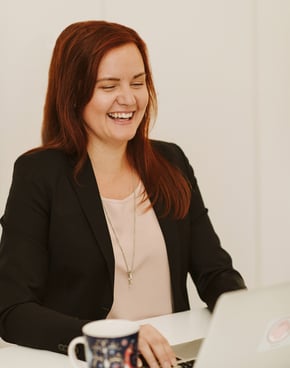1. Facebook groups
By joining Facebook groups that are relevant to your industry, you’ll quickly and easily get in touch with a large number of people working on the same questions as you do. Chances are that they therefore face the same challenges, and use the same tools.
This makes Facebook groups a powerful way to quickly get ahead in a task – by simply throwing out a question. In addition, you gain greater insight into news in the industry, as you stay updated by seeing what others are asking about.
Do you want tips on Facebook groups for digital marketers? Check out this post!
2. Networks and people within the industry
Exactly what a network means can vary depending on the context. In this case, the definition of a network is a group of people who meet regularly and talk about something they have in common. In Stockholm, for example, there’s Seo-snack for those who work with SEO, for social media there used to be Uber-AW, and for e-retailers there’s Emeet (which exists outside of Stockholm, too). Fortunately, you don’t have to wait for the next event after you’ve been to the first – then you’ve got new friends who work with the same thing as you do.

It’s harder to find networks than Facebook groups, but definitely not impossible. A good alternative can also be to start a network yourself. Since you’re planning physical meetings – or at least video chats – you’ll create a stronger relationship with those who are involved. It makes you more comfortable sharing details and specific situations. This way, you get an even better tactical sounding board than Facebook groups can give you. However, those groups can be a great place to find a network. Otherwise, we have the classic alternative – Google!
3. Accountability partner
Studies have shown that there’s a much greater likelihood that you’ll succeed with your goals if you have someone to help you. Therefore, it has become increasingly common to get an accountability partner. To me, an accountability partner is someone who helps me keep a promise or reach a goal, while helping the other person do the same.
You can use an accountability partner for many different things – to reach your goals or to support you through projects. The point is that you help each other. You want to achieve one goal, your accountability partner another. What you have in common is that you both try to help the other get there.
I found my accountability partner through a Facebook group, where he was looking for one. I was eager to get an accountability partner and answered the quickest. The foundation for our collaboration was that both set up goals we wanted to reach. Then we broke down those goals into subgoals. We went through them every week when we met or talked on the phone, and evaluated what had succeeded or failed, and why.
The most inspiring thing about having an accountability partner is that you trigger each other. Since both are trying to achieve something, it almost creates a competition. In my case we had completely different goals – but it doesn’t matter! The only purpose is that you have someone who holds you accountable, whether your goals are totally different or the same.
4. Coach
Another option for those who see your development as an investment is to hire a coach. A coach’s job is to help you define your goals, get through obstacles and achieve what you aim for. A coach has countless tools and questions that will help you gain clarity and see paths you didn’t see before. By taking help from someone whose job is to help others achieve their goals, you can get there as quickly as possible. However, if you need factual knowledge, a coach won’t have the answers. What a coach has, is the tools.
I hired a coach to help me build my company. My coach helped me make some of the toughest decisions needed, to take the next big step forward. I don’t think I would have succeeded if I didn’t take the time to reflect. We had a set up where we met every other week for 12 weeks. Between each time I had different tasks I would work with.
You can find a coach by googling, or asking around on LinkedIn.
5. Mentor
Unlike a coach, a mentor often has a lot of experience in the field you work in. It doesn’t have to be an older person, but someone who has greater insight into what you want to develop. Mentoring can be an agreement you pay for, but it can also just be someone you often turn to. Sometimes, a person might not even know they are your mentor – and sometimes you may not even realize that a certain person is your mentor, yourself. Think of a mentor as someone you ask a lot of questions, and to whom you talk about your development with.
How do you get a mentor?
There are several ways to go about it.
I’ve had a mentor who developed my leadership. She had long experience as a leader and helping other leaders to be leaders. That’s exactly why I thought she’d been asked 1000 times, but she was very happy and said yes.
Right now I see Sara Öhman as my mentor, although we don’t have that relationship officially. She helps me develop my own personal brand on social media. We got to know each other several years ago via her blog, where we first started chatting and then emailing. Since then we’ve been friends!
On Instagram, Erik Bergman also gives tips in his Stories Highlights on how to find a mentor using 10 easy steps. If you want a mentor, check it out now. Good luck!

